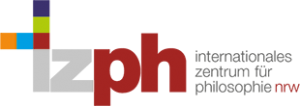The videos of the conference are online:
Watch the videos of the different presentations here:
Hossenfelder: Why Superdeterminism?
Kastner: What is Retrocausation in the Transactional Interpretation?
Flack: Using the STIRAP process to observe the quantum potential
Donadi: A Superdeterministic Toy Model
Kent: Quantum Reality from Asymptotic Measurements: possibilities and problems
Kinney: Corroboration Conditions for Cyclic Bayesian Networks
Adlam: Two Roads to Retrocausality
Sen: Modelling relativistic effects on entangled systems using retrocausality
Cohen: Superdeterminism and Retrocausality within the Two-State-Vector Formalism
Price: Can two zigs make a zig-zag? Causal engineering on the Parisian model
Hance: Supermeasured: Violating Statistical Independence without violating statistical independence
Wharton: All Useful Superdeterminstic Models are Retrocausal
Papatryfonos: Hydrodynamic quantum analogs: Superradiant emission and tunnelling of bouncing drops
Catani: A mathematical framework for operational fine tunings
Gisin: Indeterminism is physical
Vervoort: Probability Theory as a Physical Theory Points to Superdeterminism
Bradshaw: Towards an Algebraic Theory of Spin
Sutherland: Marriage of Convenience
Palmer: Discretisation of the Bloch Sphere, Fractal Invariant Sets and Bell’s Theorem
Please also see the Event Website
Agenda
Quantum mechanics has irked physicists ever since its conception, more than 100 years ago. But attempts to make sense of quantum mechanics stalled early in the field’s history. The major roadblock has been – and still is – the assumption that a sensible theory of nature must fulfil statistical independence. Theories which violate statistical independence are commonly referred to as “superdeterministic” or “retrocausal” and swiftly discarded as supposedly unscientific. This workshop will collect the world’s experts on superdeterminism and retrocausality to discuss the pros and cons of such approaches. Most importantly, we want to bring theoreticians together with experimentalists to explore how to experimentally test these ideas.
The meeting will focus on the following points:
- Just exactly what do we mean by “superdeterministic,” “retrocausal,” “teleological,” and “future input dependent”? Can we reach a common ground on the terminology?
- What are the commonly made objections to these approaches and how can we best address them?
- What models have been proposed so far? What are the differences and what do they have in common?
- What model-independent and what model-dependent experimental tests can we think of?
Organization
This meeting is supported by the Franklin Fetzer Fund, and jointly organized by the Frankfurt Institute for Advanced Studies and the Bonn Center for Science and Thought.
Organizing Committee:
Sabine Hossenfelder, Frankfurt Institute for Advanced Studies
Tim Palmer, University of Oxford
Huw Price, University of Bonn
Local Organizers:
Jan Voosholz
Laura Michler
Marlene Sieverdingbeck
Debora Eller
Location
Travel information is twofold: The Hotel Königshof (Adenauer Allee 9) is located directly at the Rhine and within walking distance to the main train station, the main building of the university and our conference venue, the Center for Science and Thought at Poppelsdorfer Allee 28. A bus (30 minutes) runs from Cologne/Bonn airport to the main train station, a cab to the hotel costs about 45€. Frankfurt and Düsseldorf airports have train connections. From Frankfurt airport it takes about 1:15h and from Düsseldorf about 1:05h.
